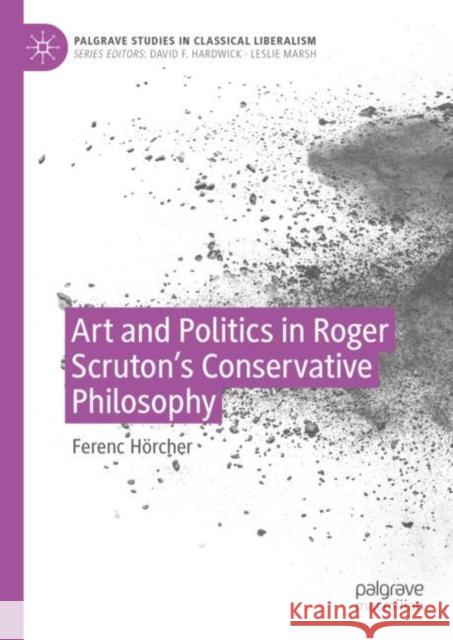Art and Politics in Roger Scruton's Conservative Philosophy » książka
Art and Politics in Roger Scruton's Conservative Philosophy
ISBN-13: 9783031135903 / Angielski / Twarda / 2022 / 393 str.
Art and Politics in Roger Scruton's Conservative Philosophy
ISBN-13: 9783031135903 / Angielski / Twarda / 2022 / 393 str.
(netto: 498,38 VAT: 5%)
Najniższa cena z 30 dni: 501,19
ok. 16-18 dni roboczych.
Darmowa dostawa!
This book covers the field of and points to the intersections between politics, art and philosophy. Its hero, the late Sir Roger Scruton had a longstanding interest in all fields, acquiring professional knowledge in both the practice and theory of politics, art and philosophy. The claim of the book is, therefore, that contrary to a superficial prejudice, it is possible to address the philosophical issues of art and politics in the same oeuvre, as the example of this Cambridge-educated analytical philosopher proves.Accordingly, the book has a bold thesis on the general, theoretical level, mapping the connections between politics, art and philosophy. However, it also has a pioneering commitment on the level of the particular, offering the first full-length study into the philosophical legacy of Roger Scruton, probably the most important British conservative philosopher of the late 20th and the first decades of the 21st century. It also allows reader to look into the philosopher’s fascination with Central European art and culture. Finally, it also provides a daring analysis of the late Scruton’s metaphysical inspirations, connecting the arts, and especially music, with religion and the bonds of love.
This book covers the field of and points to the intersections between politics, art and philosophy. Its hero, the late Sir Roger Scruton had a longstanding interest in all fields, acquiring professional knowledge in both the practice and theory of politics, art and philosophy. The claim of the book is, therefore, that contrary to a superficial prejudice, it is possible to address the philosophical issues of art and politics in the same oeuvre, as the example of this Cambridge-educated analytical philosopher proves.Accordingly, the book has a bold thesis on the general, theoretical level, mapping the connections between politics, art and philosophy. However, it also has a pioneering commitment on the level of the particular, offering the first full-length study into the philosophical legacy of Roger Scruton, probably the most important British conservative philosopher of the late 20th and the first decades of the 21st century. It also allows reader to look into the philosopher’s fascination with Central European art and culture. Finally, it also provides a daring analysis of the late Scruton’s metaphysical inspirations, connecting the arts, and especially music, with religion and the bonds of love.











